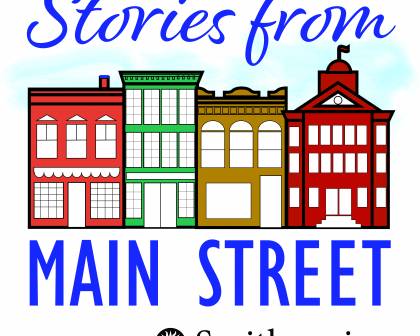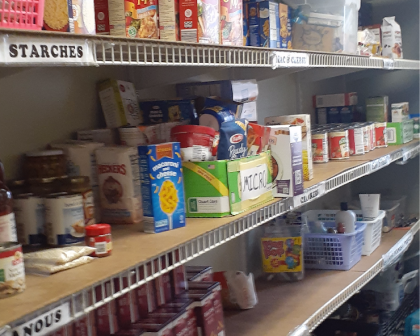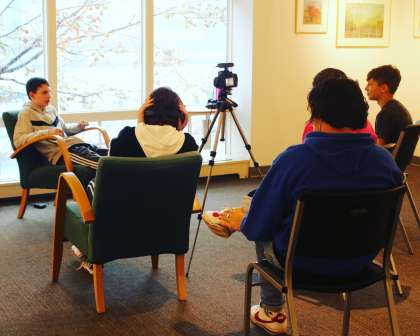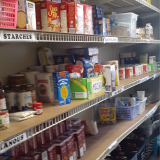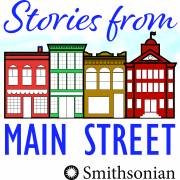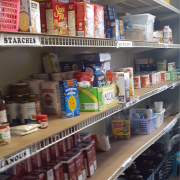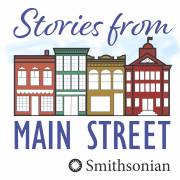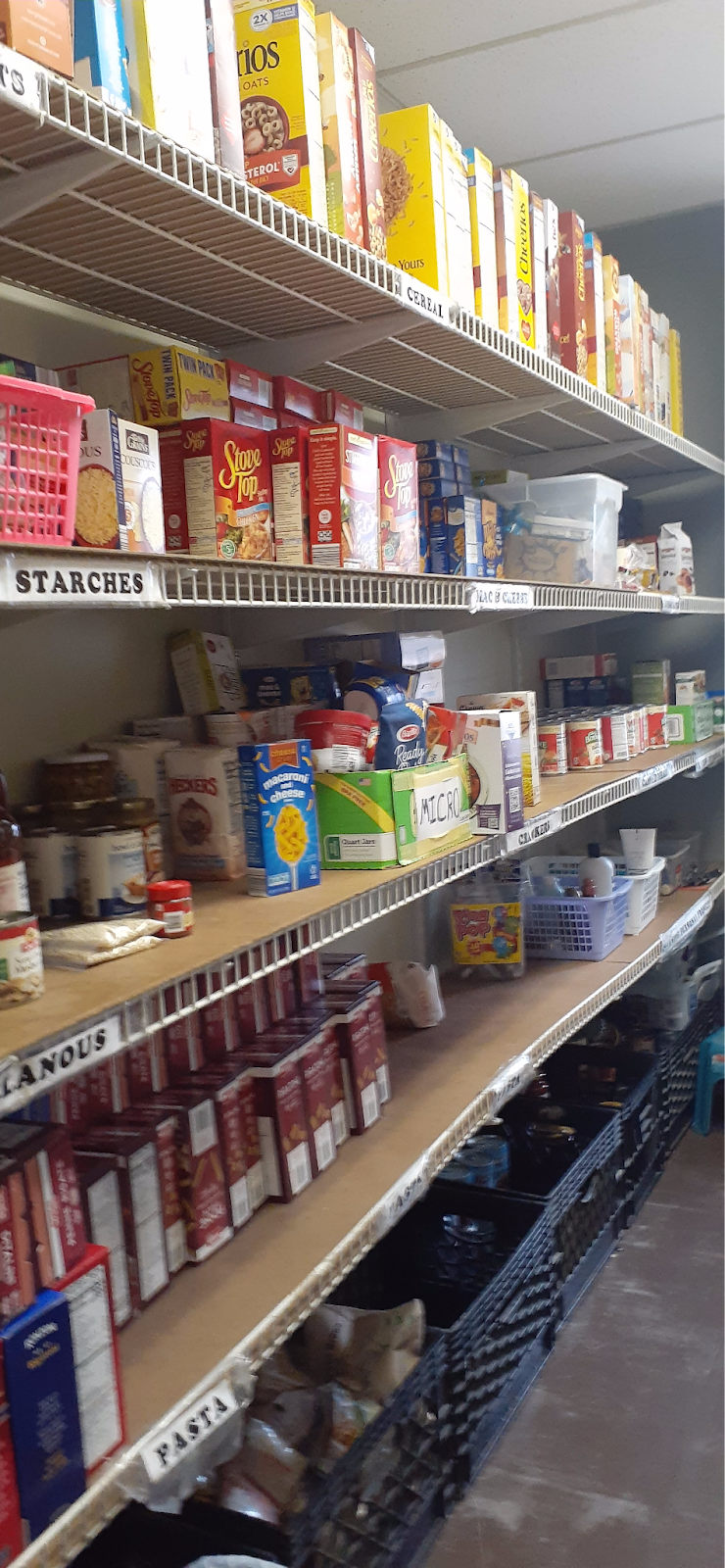
New Jersey 4-H'ers Explore Food Insecurity in their Communities
We're excited that seven New Jersey 4-H'ers recently took part in our Stories 4-History project-based learning collaboration with the National 4-H Council and the Smithsonian's Office of the Under Secretary for Education. Youth in New Jersey participated in the annual Citizenship Washington Focus in the summer of 2023 and decided that they wanted to look back at the impact of COVID on food insecurity in the state. The team worked together to conduct research into how COVID-related shortages changed the shopping behavior of many people. The 4-H'ers also surveyed local food banks to determine COVID impacts and researched the work of local governments in New Jersey. Thank you to the great team: Benjamin J., Josh G., Ella P., Nehal B., Katelyn L., Erika G., and Bea P. for all of their hard work on the project. We also greatly appreciate the support that New Jersey 4-H staff and advisors provided to the team!
Food Insecurity
Throughout New Jersey, food insecurity is a huge issue. Its effects can be felt in nearly every community within our state. In 2020, one in twelve households experienced food insecurity. This means that 285,000 New Jersey households did not have reliable access to affordable, nutritious food. There are some programs in New Jersey to try to combat this issue such as school districts delivering lunch to some students during the pandemic, SNAP benefits, the Food Security Planning Grant Program, Rutgers Against Hunger and the Food Desert Relief Program. While these can be helpful, there are still other factors that contribute to food insecurity in the state.
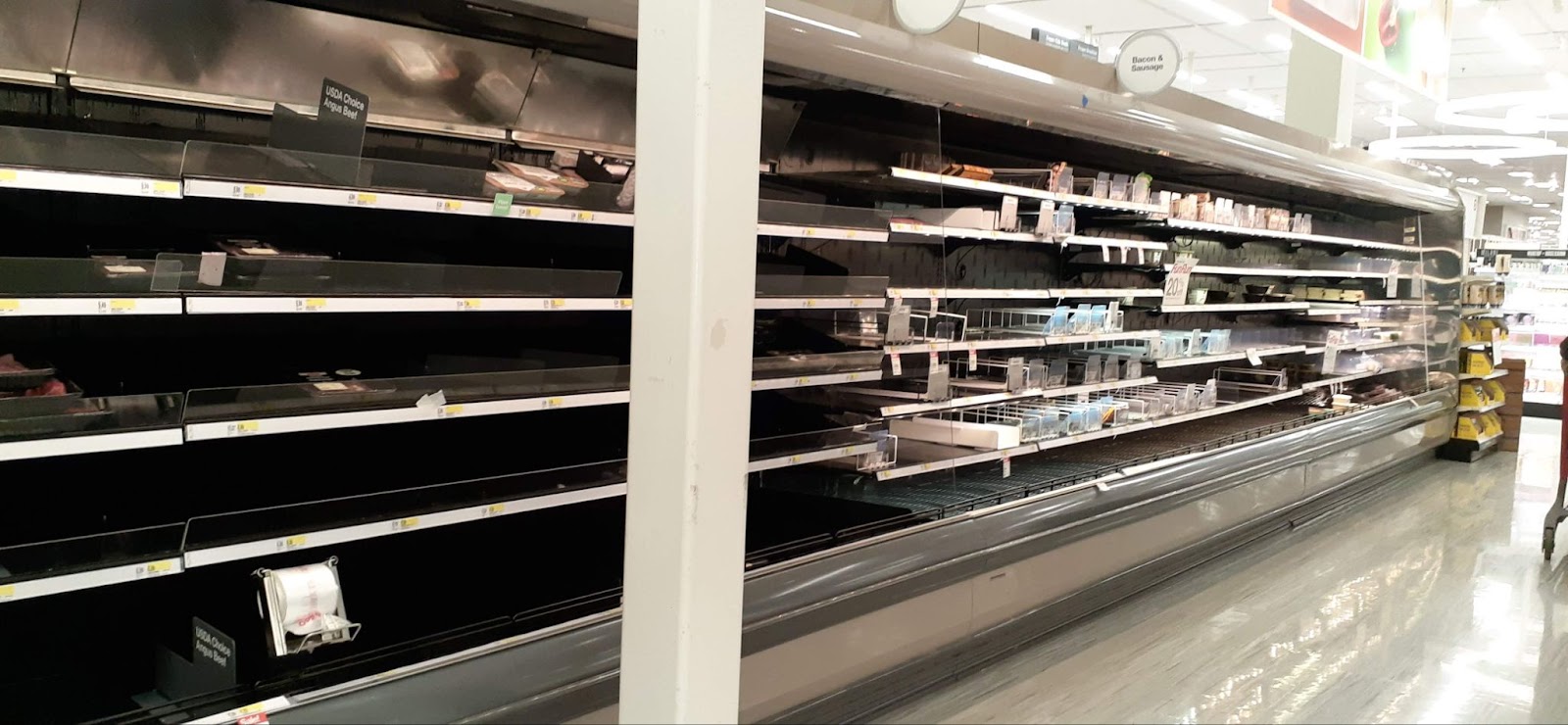
Food Hoarding and the Pandemic:
Since the pandemic, the way we think about food and food shopping has changed. During quarantine, many people started to “hoard” different products. We created a survey to document this, and received over 100 anonymous responses. The results showed that people hoarded shelf stable items for the most part such as canned goods, beans, water, paper products, and pasta. The items people had the most trouble finding during this time were paper products, meat, bread, cleaning supplies, eggs, frozen vegetables, formula, and bottled water. People in New Jersey hoarded so many products during the pandemic, that the New Jersey Assembly passed a bill making it illegal to return hoarded items from this time in 2020, citing CDC research for why they were passing the bill. The pandemic has left a lasting mark on the food pantry's operations. A local food pantry representative shares the staggering impact, stating,
"Prior to 2020, we were serving a high of 30 families and individuals a week! At some point in 2020, we were serving 200 families and individuals a week! It was a very drastic and spontaneous increase."
Food Insecurity in Marginalized Groups:
Many people rely on food programs and food pantries to feed themselves and their families. Unfortunately, for many groups, these programs do not have culturally appropriate foods. Providing culturally-appropriate foods in food banks is not only about meeting the basic nutritional needs of individuals and families, but it also acknowledges the importance of cultural identity and dignity. Food is not just sustenance; it is deeply intertwined with our cultural heritage, traditions, and sense of belonging. By offering diverse food options that reflect the cultural backgrounds of the communities they serve, food banks can create a more inclusive and respectful environment. Furthermore, culturally-appropriate foods can also contribute to better health outcomes. When individuals have access to foods that they are familiar with and enjoy, they are more likely to consume a well-balanced diet and meet their nutritional needs. This can help prevent chronic diseases and promote overall well-being.

What’s Next?
It is clear through our research that food insecurity is still a prominent issue in New Jersey. There are many politicians in NJ that are focusing on and making progress towards making school lunches free for all students, reducing stigma and making affordable nutrition accessible to more people. Is that enough? One anonymous respondent wrote to us,
“Food insecurity doesn't just affect those at the poverty level and who can qualify for food stamps. Those who work and don't qualify for SNAP (ALICE population) yet have nothing in the bank after paying bills are the ones who are most insecure. In our family’s instance we lost jobs during COVID and after, it was many temp and short term contract positions. We were underemployed yet had the same bills as before. And that keeps you down economically. Even now with food and pet food prices astronomical… There is no reason a 15lb bag of dog food should be $50. Pet food has doubled in cost. They blamed COVID but yet that was years ago and the costs are still high. We had these pets pre-COVID and now struggle to feed them as well as our family while continued underemployment. The middle American family has had enough, we are angry and fed up and it is creating such hopelessness you have increased suicides and mental health issues. When you feel you can never do better no matter how hard you try, what is the point in living? The Feds need to take a lesson from the EU and start protecting and working for American families/people. Not corporations and donors.”
We all have a responsibility to help. Corporations, politicians, and individuals can all make an impact on food insecurity. From volunteering for existing programs, to coming up with something new, we all have a social responsibility to help out.
Sources:
https://www.foodbankrockies.org/blog/unequal-impact-hunger-communities-color/
https://www.ncbi.nlm.nih.gov/pmc/articles/PMC9231159/
https://www.hcdnnj.org/foodaccess
https://www.pbs.org/newshour/health/3-things-food-banks-really-want
https://frac.org/wp-content/uploads/Hunger-Solutions-New-Jersey-Report.pdf
NJ Students Basic Needs Support Playbook_Feb 2022.pdf
https://www.nj.gov/governor/news/news/562022/20221130a.shtml
https://www.nj.gov/governor/news/news/562023/approved/20230817b.shtml
https://www.nj.gov/state/njsca/dos_njsca_passing-it-on-2020-1007.html


